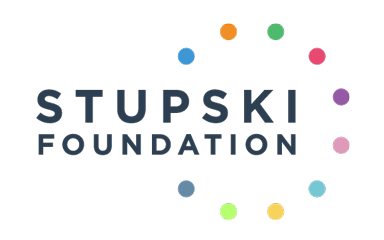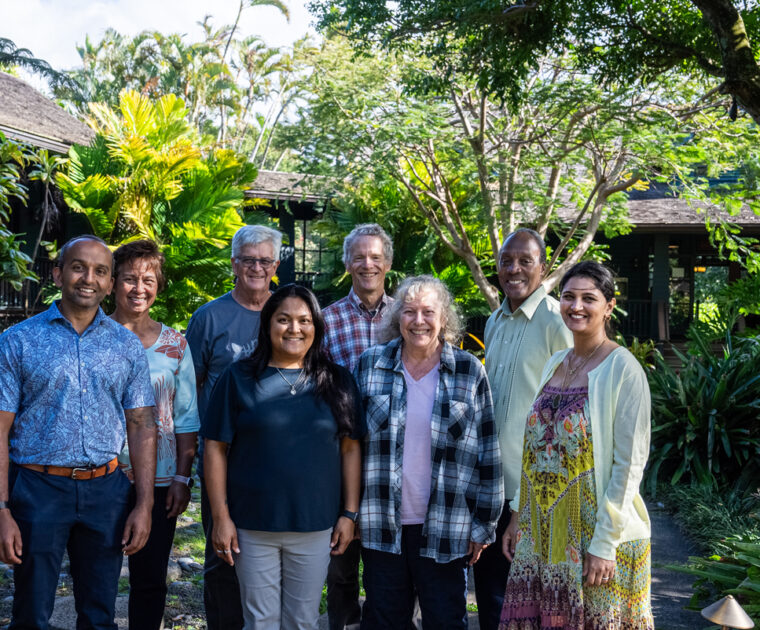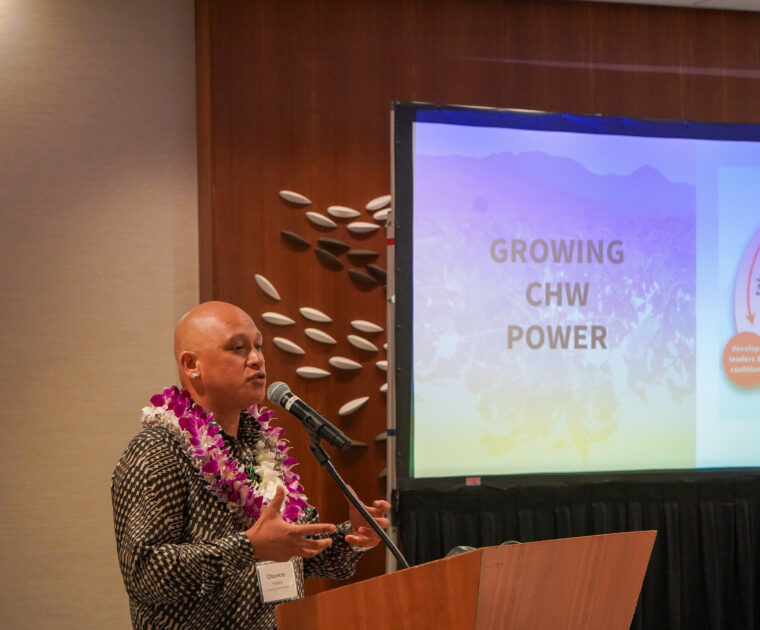
Health
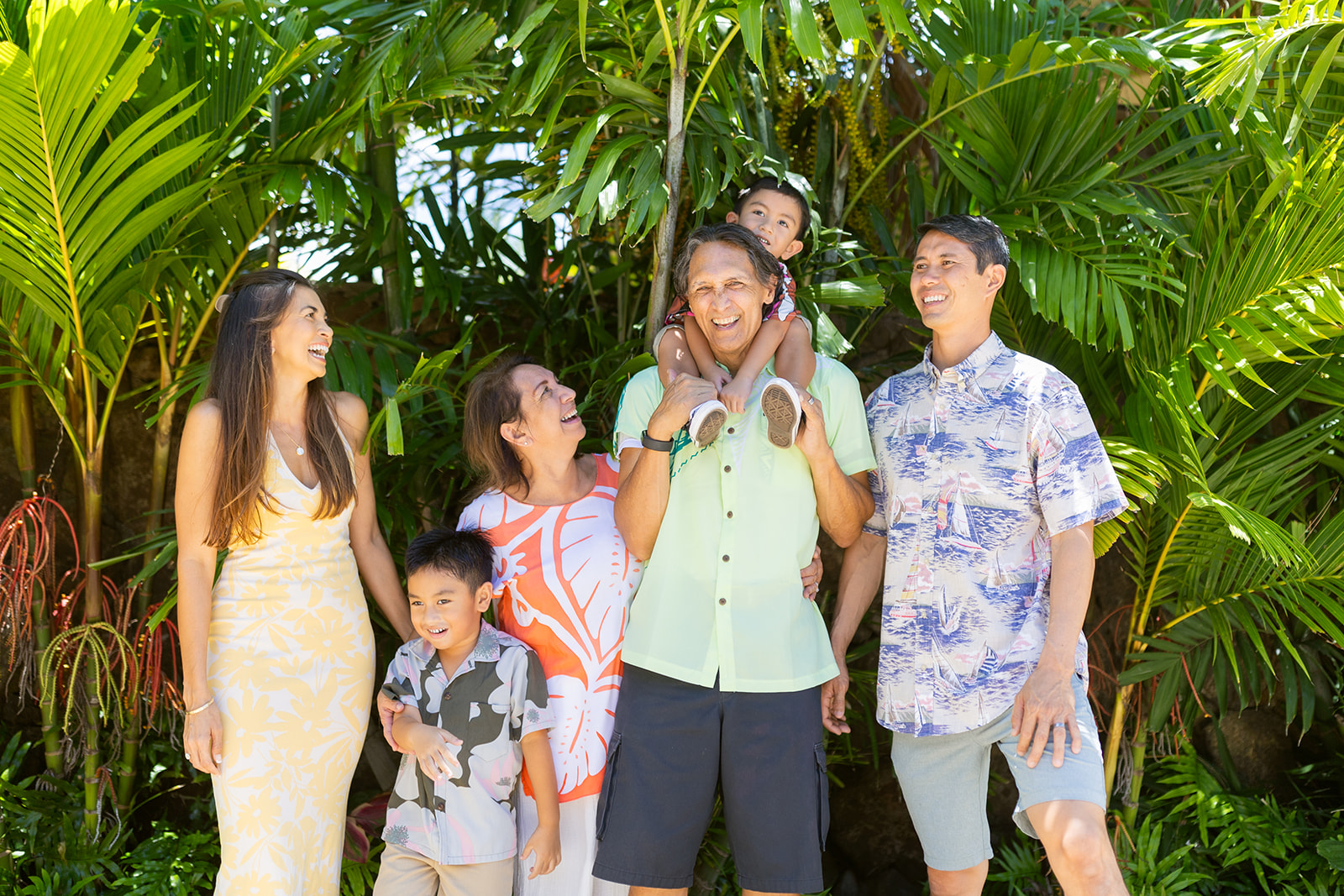
Health is everything.
We believe everyone has a fundamental right to health and holistic care that supports their physical, spiritual, and mental well-being. We partner with communities, policymakers, and institutions to close racial inequities in health and nurture healing throughout a person’s life. We start supporting this before birth and into the early years of a child’s life, given the enduring importance of these seminal years. We also support local organizations offering culturally rooted practices and healing that can cultivate well-being in the communities where children grow up. We fund a variety of programs focused on improving everyone’s ability to continue living with dignity, recognizing the acute challenges that arise later in life due to serious illness. Our work in both Hawai‘i and California is informed by a holistic approach that adapts to the needs of our partners in each state, and we welcome opportunities to share lessons from our experience with other funders.
Health comes first.
Why Focus on Early Childhood Health Before Birth Through Age 5?

Neurologically, the first thousand days of life are extraordinarily important for healthy development. Brains are forging more than 1 million new neural connections every second, shaping brain architecture related to seeing and hearing effectively, problem-solving, and self-control. This is the most pivotal period for development, in which form 90% of the neural connections that a person will ever make. Toxic stress—when the body gets stuck in fight-or-flight mode for long stretches of time—can interrupt that period. It can affect a child’s ability to learn, communicate, play, pay attention, fend off illness, and maintain a healthy weight.

Today many families of color experience economic and social stressors rooted in structural racism and a history of exclusionary practices. Stress on the household is stress on its children. Without special attention to help children manage it, the stress can become toxic and impede healthy development.

Addressing the social determinants of health—food, safety, housing, education, income, and transportation—is as critical to children’s development as it is to adults’ well-being. There are many effective, culturally relevant ways to take them into account when programming for children and families.

Protective factors can help buffer children from these stressors’ negative effects. The most important protective factor for young children is a strong, nurturing relationship with a caring adult. This can create a healthy attachment and offer a foundation for good relational health and socio-emotional development.
Supporting Children as They Grow
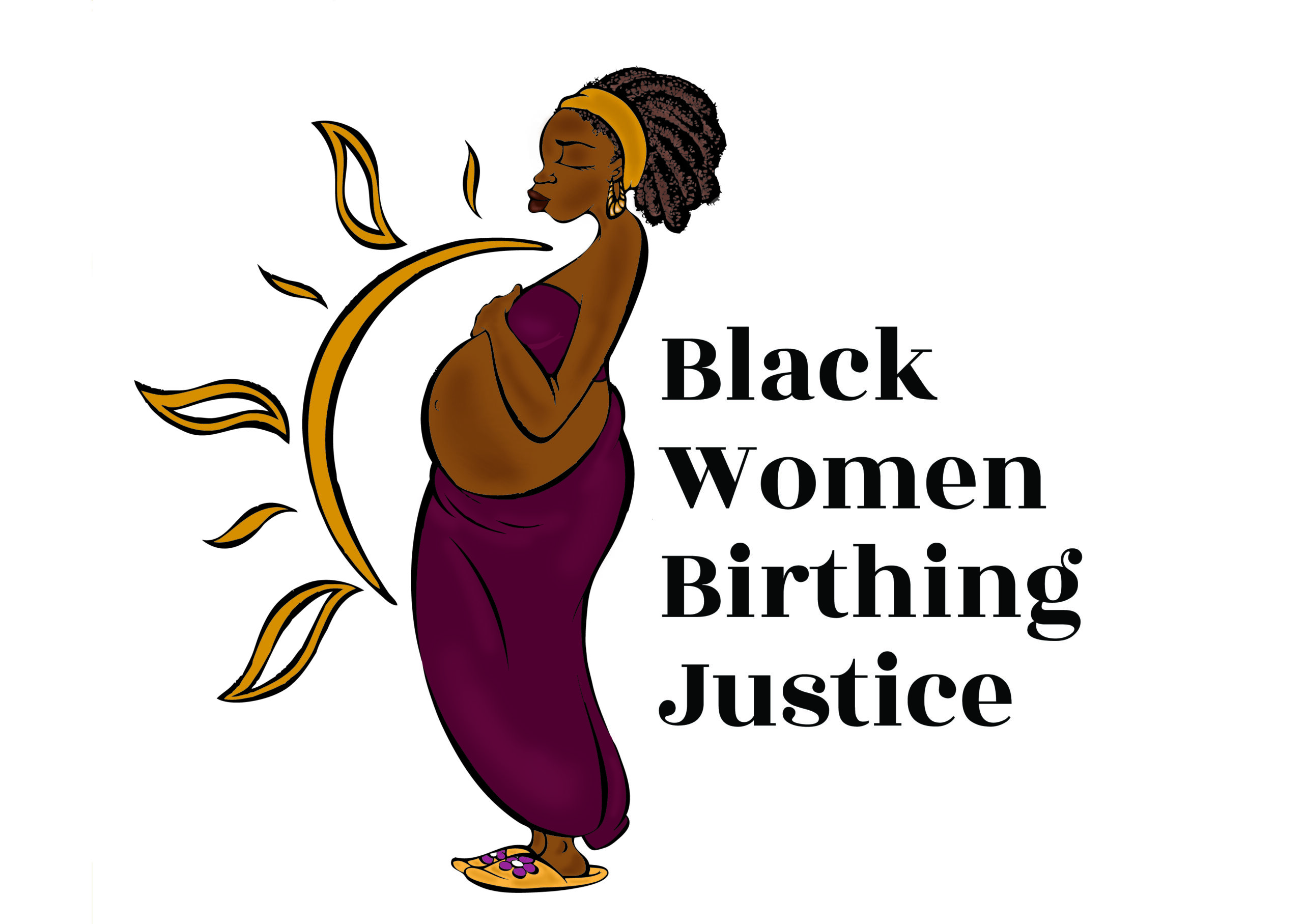
Improve Prenatal Care
In America, birth outcomes are worse for Black college graduates than for white women who have not finished high school. Similar inequities exist for Pacific Islanders. We support culturally affirming care starting prenatally to address the multiple barriers mothers of color face in our health system.
Support Young Families
Pediatricians see children almost a dozen times before age 3 for well child visits, each one an opportunity to address and strengthen protective factors with the family. No other system comprehensively reaches children this young. We are working with clinics that use these visits to navigate families to needed social services and that partner with families to better identify and treat toxic stress and caregiver well-being. Community health workers can play an important role as the trusted bridge to extend these services into the community. Increasing training on infant mental health among childcare providers can reinforce those protective factors further.
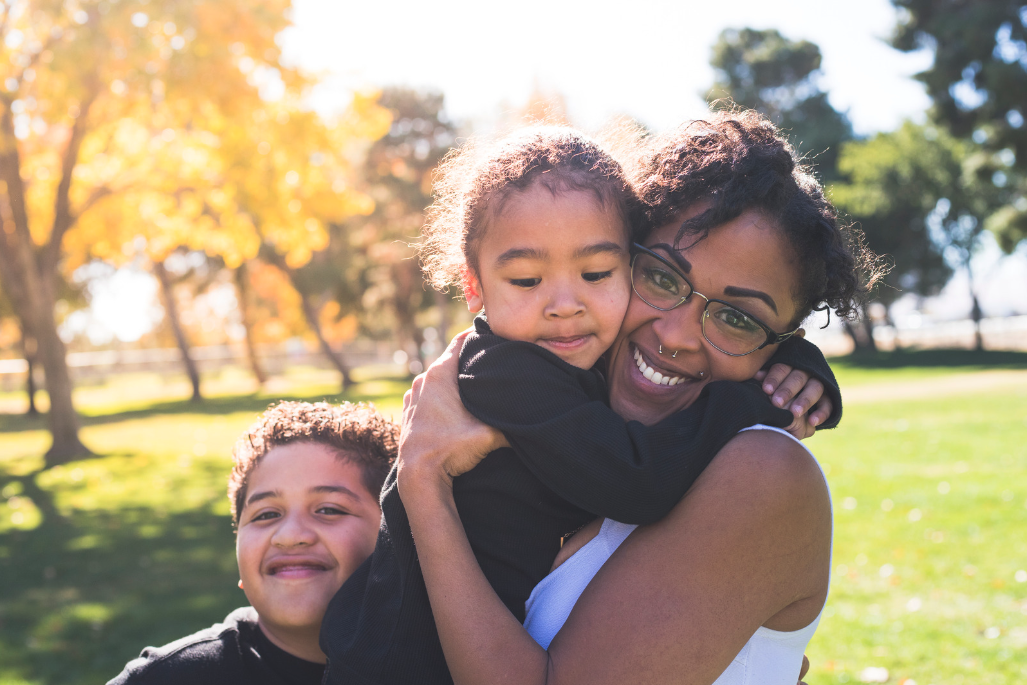
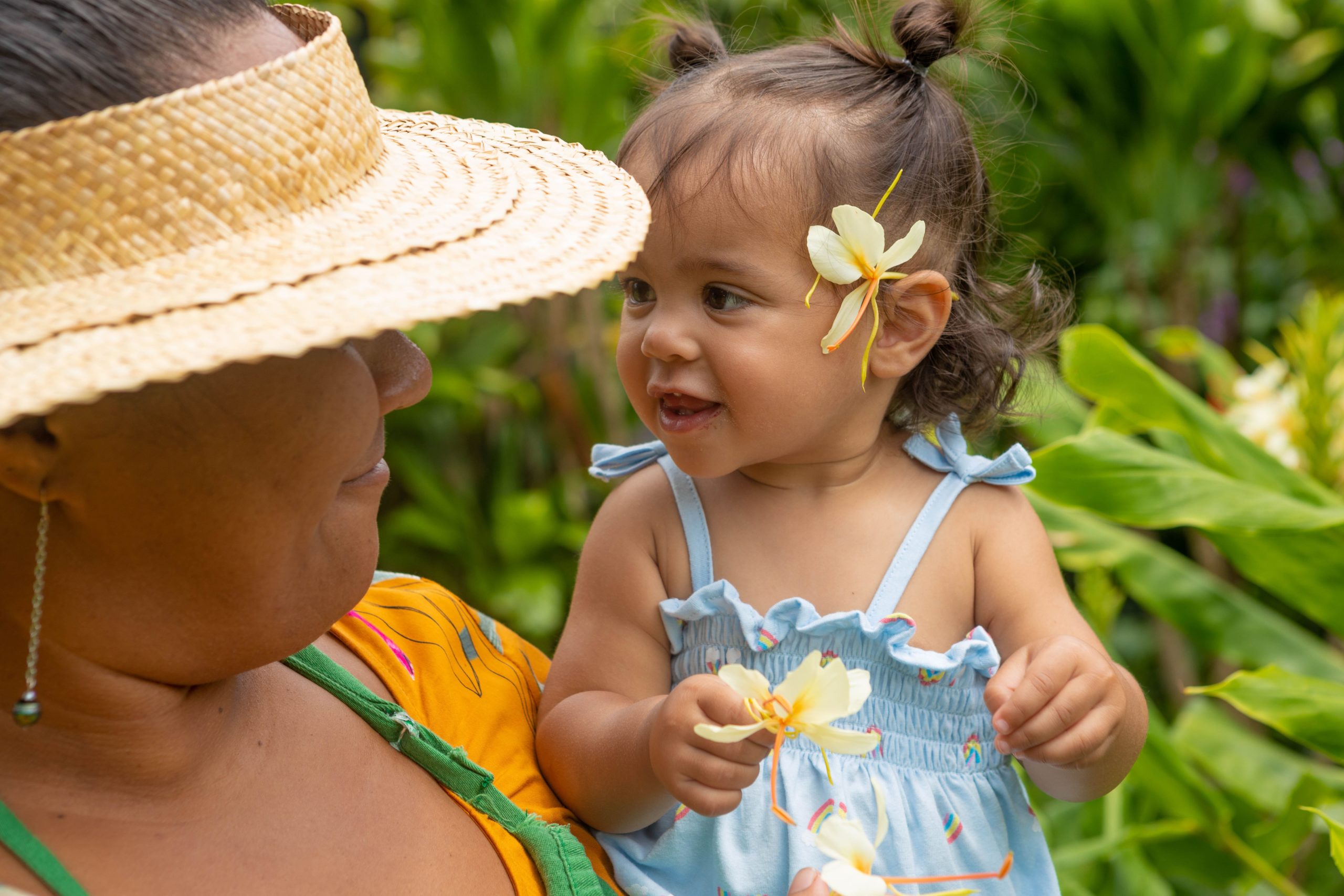
Fund Community Resilience
Children grow up in households, and those households exist in communities. The more assets that community has to support aspects of well-being, the better. Because a healthy, grounded parent can bring richer interactions to their children, we support local organizations that offer culturally rooted practices and healing. In Hawai‘i, for example, we have invested heavily in the community health centers that play this holistic role.
Policy Sets Priorities
All of our work depends on money, policy, and regulation. We seek opportunities to improve each, connecting programs that we fund to systems change efforts to alter the rules shaping children’s futures.

A brighter future lies ahead when all children have the resources they need from birth to experience a strong start to life.
We hope you will join us and our many partners to make this a reality.
Why work in serious illness care?
America has a fraught relationship with death. Few people die peacefully, free of pain and unnecessary suffering. Few people receive the level and type of health care that they want in their final days, having neither been asked about their wishes nor fully informed about the impacts of their choices. These negative experiences for the person passing and their surviving loved ones are even more prevalent among people of color. The structure of our health care systems, social discomfort with talking about mortality, and the challenge of engaging people on this issue before a health crisis or terminal diagnosis all contribute to the problem. These barriers are compounded by poverty, unmet social needs, and language and culture gaps between patients and clinicians.
Suffering can be physical, emotional, or spiritual. In the Bay Area, 1 in 4 people near the end of life experience unmet needs for pain relief. Half suffer from a lack of emotional support. Nearly two-thirds have unaddressed spiritual or religious concerns. Locally and nationally, disaggregating data by race shows that people of color have worse experiences.
1 in 4 people near the end of life experience avoidable suffering.
Half suffer from a lack of emotional support.
Nearly two-thirds face unmet spiritual or religious needs, with people of color experiencing greater disparities.
A better experience is possible.
Philanthropy can work in partnership with health systems and community-based organizations to alleviate these barriers for people with serious illness, improving the chance that people will be free from unnecessary suffering and experience comfort, love, and care through the end of life. The last stage of life can be better for patients and better for the community that survives them. We hope you will consider joining the small group of funders supporting more loving, dignified, and equitable serious illness and end-of-life care for all.
What solutions exist?
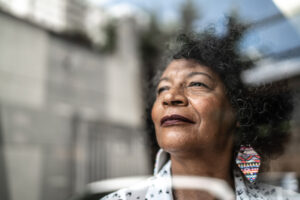 It is hard to engage with the medical jargon doctors use for serious illness. To us, serious illness is any health condition that will likely lead to death within a couple of years. Every serious illness has its own specialists. Every specialist has their own vocabulary. Specialists’ guidance to patients can contradict guidance from other specialists. Add to that the difficulty of reaching a doctor outside of a scheduled appointment: Navigating serious illness is at best labyrinthine and at worst dehumanizing. People want plain answers they can understand, with time to consider and act on them. They often receive this information, even when decrypted, when thinking is impaired by an immediate health crisis. The situation is much, much more challenging for people with a native language other than English. We hear people lament that they wish they had known more before the onset of a crisis.
It is hard to engage with the medical jargon doctors use for serious illness. To us, serious illness is any health condition that will likely lead to death within a couple of years. Every serious illness has its own specialists. Every specialist has their own vocabulary. Specialists’ guidance to patients can contradict guidance from other specialists. Add to that the difficulty of reaching a doctor outside of a scheduled appointment: Navigating serious illness is at best labyrinthine and at worst dehumanizing. People want plain answers they can understand, with time to consider and act on them. They often receive this information, even when decrypted, when thinking is impaired by an immediate health crisis. The situation is much, much more challenging for people with a native language other than English. We hear people lament that they wish they had known more before the onset of a crisis.
Navigating serious illness is at best labyrinthine and at worst dehumanizing.
One way to help is to raise awareness earlier about serious illness and end-of-life issues in culturally relevant ways. While it may not be immediately relevant to an individual’s situation, planting the seeds of information can help give them a reference point to return to in the future. Many people also know someone who is a caregiver, for whom these ideas themselves or connections to support groups and services can be a lifeline.
A second way to help is to bring the conversations and supports to people directly when serious illness strikes. We support culturally relevant programs that can address the whole range of needs of a person living with serious illness and their caregiver. Nothing matches sitting alongside a person, unbound by appointment times, able to converse about the compound emotional, spiritual, legal, financial, family, and medical challenges they face while living with a serious illness.
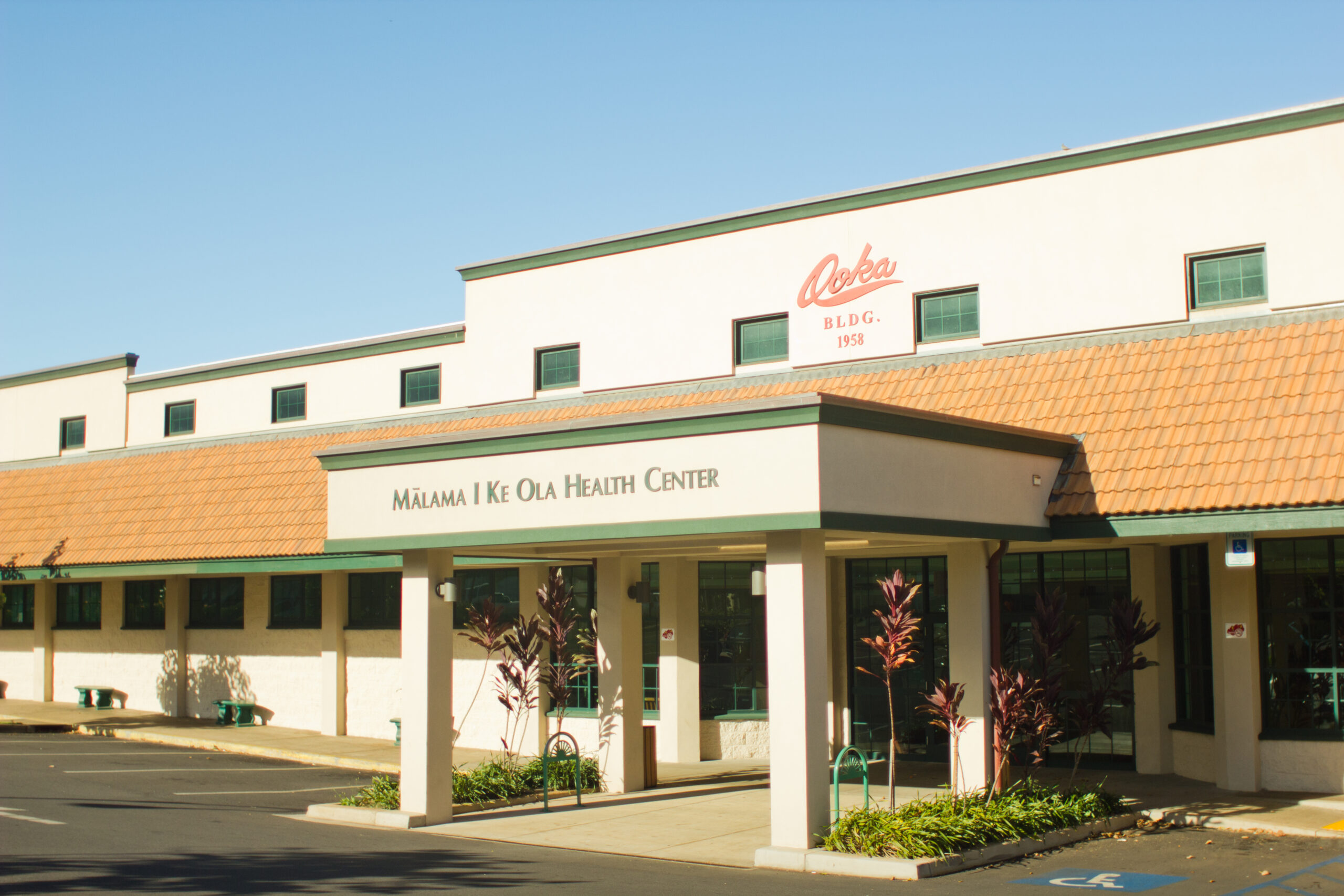
We want hospitals and clinics to continue expanding and improving their services too. We support organizations delivering palliative care—a medical specialty that provides an additional layer of support to people living with serious illness. People who receive specialty palliative care are much more likely to get the kind of medical and nonmedical care that they personally want and live longer with a higher quality of life.
While many palliative care services are billable to health insurers, gaps remain. We work with partners to find ways that providers can secure sustainable revenue for the programs we are expanding with grant dollars. We advocate for state policies that can pay for the full scope of programs needed to financially sustain quality serious illness care so that our partners’ work can spread beyond the means of philanthropy.

Together, these approaches can move us toward a health care system that truly supports everyone’s quality of life, even when they face a serious illness.
Check out our latest health news.
Resources
We constantly seek out information from thought leaders to challenge our assumptions and learn about the latest developments in the field. Here are just a few resources that have informed our grantmaking strategies.
